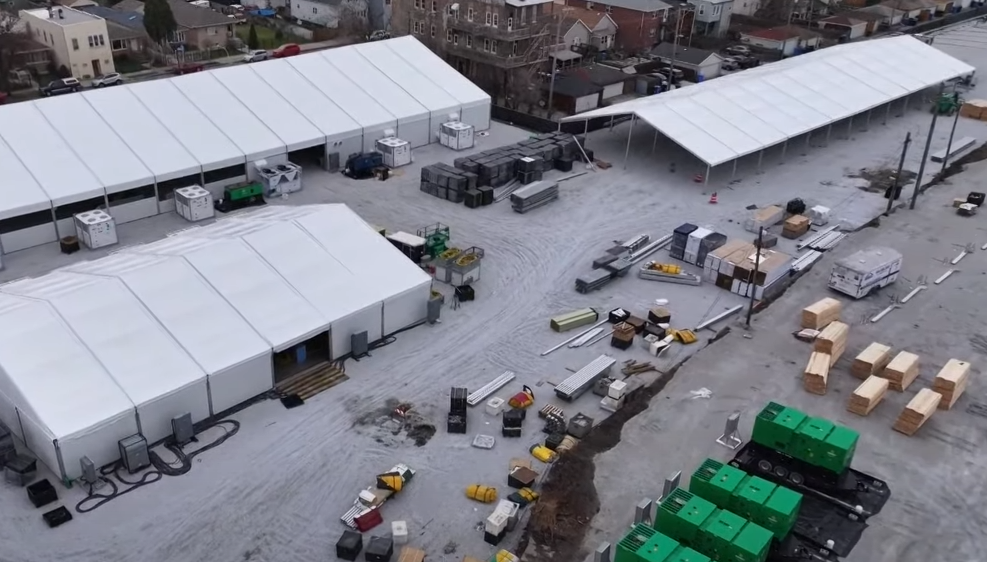Chicago’s Winter Migrant Camp Construction Paused by Illinois Authorities
The anticipated establishment of a winter migrant camp in Chicago, Illinois, faced an abrupt halt due to concerns over soil testing results.
The proposed site, aimed at providing shelter for migrants during the colder months, encountered a setback as officials raised alarms regarding potential soil contamination.
The initiative, spearheaded by local authorities in Chicago to support individuals experiencing homelessness, aimed to set up a temporary shelter as temperatures dropped.
However, as plans progressed, soil testing conducted at the proposed site revealed worrisome contamination levels.
The Illinois Department of Public Health, after analyzing the soil samples, flagged the presence of pollutants exceeding safe limits for human habitation. The nature and extent of these contaminants were not immediately disclosed, prompting an urgent suspension of the construction project. (https://www.qualityhotelgander.com)
Mayor Lori Lightfoot’s office issued a statement expressing concerns over the findings, highlighting the city’s commitment to ensuring the safety and well-being of its residents, including vulnerable populations.
The fate of Chicago’s Winter Migrant Camp

The city promptly convened a task force comprising environmental experts and health officials to investigate the soil’s contamination sources and the potential risks posed to individuals residing in the area.
In response to the unforeseen delay, local advocacy groups emphasizing the urgency of providing shelter during the harsh winter months urged a swift resolution to address the contamination concerns.
They stressed the critical need for alternative accommodations or rapid remediation efforts to ensure the safety of those facing housing insecurity amid the inclement weather.
The setback adds pressure on city authorities to swiftly find an alternative location or expedite the remediation process to resume the winter shelter project.
This unexpected obstacle underscores the complexities and challenges involved in swiftly addressing homelessness while simultaneously ensuring the safety and well-being of the individuals reliant on such essential facilities.
As discussions and assessments continue, the future of the winter migrant camp project in Chicago remains uncertain, highlighting the delicate balance between humanitarian efforts and environmental safety concerns.
Efforts persist to find a suitable resolution that upholds the welfare of the city’s vulnerable populations while addressing environmental risks.


Comments are closed.